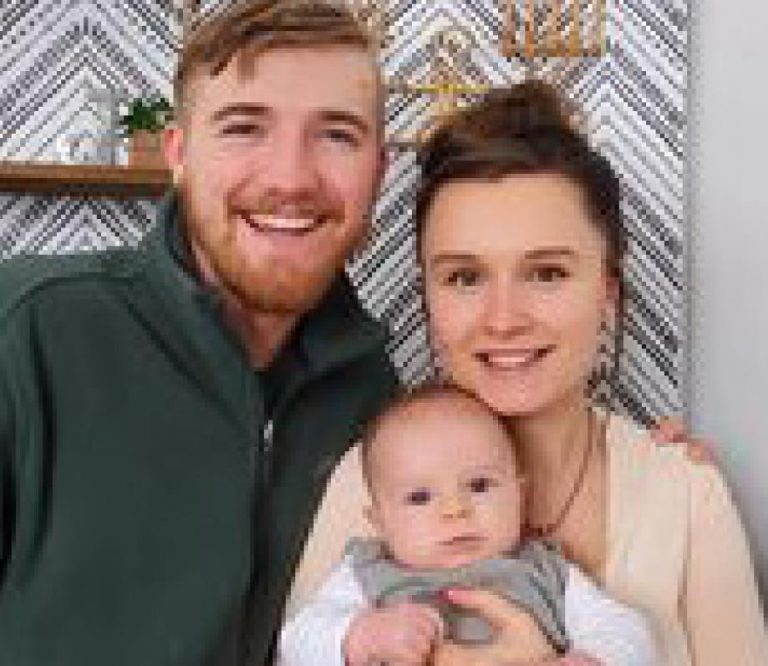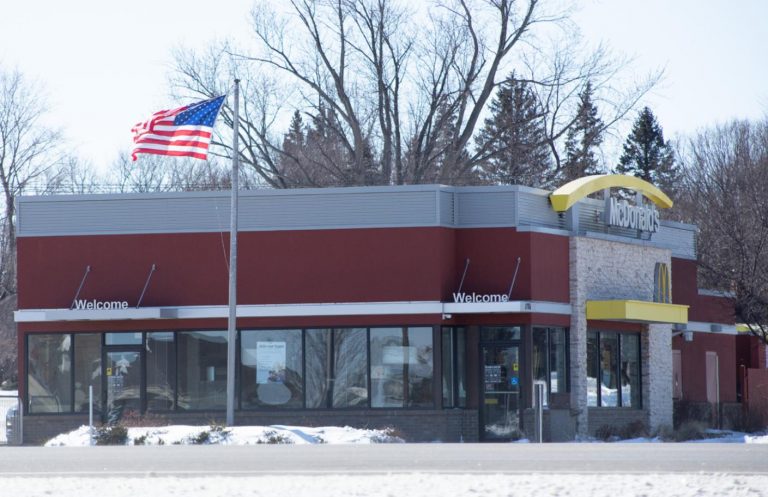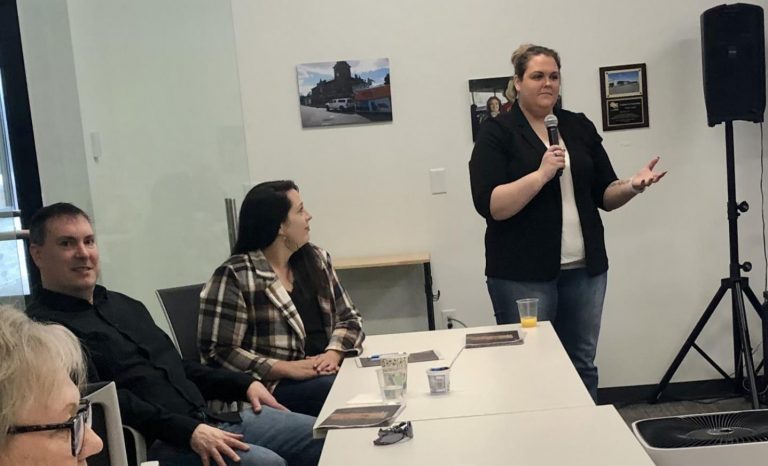Lifestyle
UPCOMING EVENTS
Saturday, March 12th: Talking Waters Beer Brunch. Begins at 11 a.m.

Local teacher starts baking business
Robyn Aslesen first started baking custom cakes for her own wedding in 2014. Being pleased with the results, she began adding in a few more wedding and graduation cakes over the years. By the end of 2021, her three-year-old son began helping Aslesen with her baking. “He wanted to bake more than we were able to eat,” she says. “When I mentioned that to him, his response was – mom, you should sell some!” Thus, Aslesen says, it was that idea from her child that planted the seed of inspiration to move the business forward. Within a week of his suggestion, Aslesen says she applied for and received her Minnesota Cottage Food Producer license, and Tasty Bakes and Custom Cakes was born.

Lil’ Thrifty Babes offers affordable, gently used clothing for babies
Settling into her new role as a stay-at-home mother, Anaïs Johnson, of Clarkfield, started brainstorming ideas for something to do that would be a unique home-based business. What she came up with, a couple of months ago, was a homebased re-sale site that operates on Instagram in which parents looking to find trendy, affordable, gently used baby clothes could purchase them easily from the comfort of their home.

Montevideo McDonald’s participating in Shamrock Shake fundraiser
Beginning on March 7th through the 17th, Montevideo’s McDonald’s restaurant is participating in a campaign along with 225 other participating restaurants in Minnesota, western Wisconsin and in Michigan to raise funds in support of Minnesota’s Ronald McDonald Houses located in Minneapolis, Rochester, and Duluth, as well as the two Ronald McDonald Family Rooms located in St. Paul.
Community Food Shelf seeking donations
The Chippewa County Food Shelf is currently looking for donations. Financial strain and hunger have affected many Minnesotans this year. With the continuation of the pandemic, rising costs of goods and services, and changes to the workforce, many families in Chippewa County are struggling to make ends meet. When emergencies arise, people are often forced to choose between buying food, paying for heat, child care, medication, or housing.

Area NFT collector explains the value in collecting
The world of NFTs is confusing to many, but the term is becoming more mainstream as the popularity of buying, creating and trading NFTs rises. The term, NFT stands for non-fungible token, a unique unit of data-employing technology that provides an opportunity for tracking and logging. In Granite Falls, Scott Ryan has researched and mastered the art of buying art in the form of NFTs.

Women’s Rural Advocacy Program News
March is Women’s History Month. Women have made a huge impact on policies and understanding of Domestic Abuse. One group we want to recognize would be the Women from the Duluth Model. The Duluth Model helped to change the way community members think of domestic violence. This model is an inter-agency approach that brings justice, human service, and community interventions together around the primary goal of protecting victims from ongoing abuse. The Duluth Model was started in 1980-1981. Eleven community agencies (police, prosecutors, probation, mental health agencies, as well as others) took part in this experiment. The goal of this experiment was to bring criminal, civil justice, and community agencies together to work in an interrelated way to respond to domestic abuse cases. The Duluth Model was developed by a small group of activists. “The Domestic Abuse Intervention Project (DAIP) began in a small, upstairs kitchen of the Duluth Community Health Center in Duluth. Three people were employed to coordinate the project, provide services to victims and offenders, and negotiate policies and procedures with community agencies.” The main emphasis and goals of this were to establish better communication between community partners as well as provide intervention in domestic abuse cases. There are many groundbreaking changes in domestic abuse policies that are shown in the Duluth Model history. In 1981, Duluth police issued a “mandatory arrest policy”. This policy would require that perpetrators of domestic abuse must be arrested in the event of an assault. In 1982, DAIP consulted with Range Women Advocates to help adopt this model in rural northern Minnesota communities. In 1983, the Power & Control Wheel was developed by neighborhood women who had experienced domestic abuse. In 1989, The Duluth police departments adopted a new policy that eliminates arrests in self-defense cases and develops a new training curriculum that was called Law Enforcement Response to Domestic Assaults. This provided ongoing training of law enforcement officers. Changes are still being implemented today. In 2017, DAIP completed the Blueprint for Safety Demonstration Project funded by the Office on Violence Against Women. The project was a five-year organizing effort. The project updated existing domestic violence policy and protocols as well as a method of analyzing and distributing risk information and improved the way in which policies across the criminal system worked together to provide improved safety for victims and accountability for offenders.

Memory Care Corner
The Alzheimer’s Association statistics about memory loss in Minnesota shed some light on its prevalence. They are from the 2021 report at alz.org/ facts. The number of people aged 65+ with Alzheimer’s is projected to be 120,000 by 2025 which is an increase of 21.2% from 2020. Last year, there were 170,000 people providing 155,000,000 hours of unpaid care. Dementia caregivers today are providing 20% more care than in 2009. Whether it is you, a loved one, a customer or neighbor, memory loss is something that touches everyone in our communities, and I would like to share some of the resources available.

Anderson-TeBeest Funeral Home operates on old fashioned values
Anderson-TeBeest Funeral Home owners Kevin and Judy TeBeest both grew up in Montevideo, purchasing the funeral home in Montevideo in 2012. The history of the funeral home began in 1908, when the Anderson Funeral Home was first established in South Dakota by brothers John and Joseph Anderson. The brothers moved to Montevideo in 1912, along with their business. When Kevin and Judy purchased the business in 2012, the name was changed to Anderson-TeBeest Funeral Home.

The Community Newspaper
When I was growing up in the early 1980s, we had a weekly newspaper in our town. There was a woman assigned to cover our little neighborhood. I remember her calling each week to ask my mother what was new in our family. Did Jeremy make the honor roll this quarter? Had we gone on vacation recently? Did we get a new pet? She would take this information from anyone in the neighborhood who was willing to share it and would write a column each week. When the paper came out on Wednesdays, my mother was always excited to read what was going on in the neighborhood. Everyone on our street knew each other. We played outside with the kids every day until dusk. My parents were in a bowling league with our neighbors. We had a block party in the street in the summer. When a new family moved in everyone welcomed them and introduced themselves. I guess you could say it was a great community.

